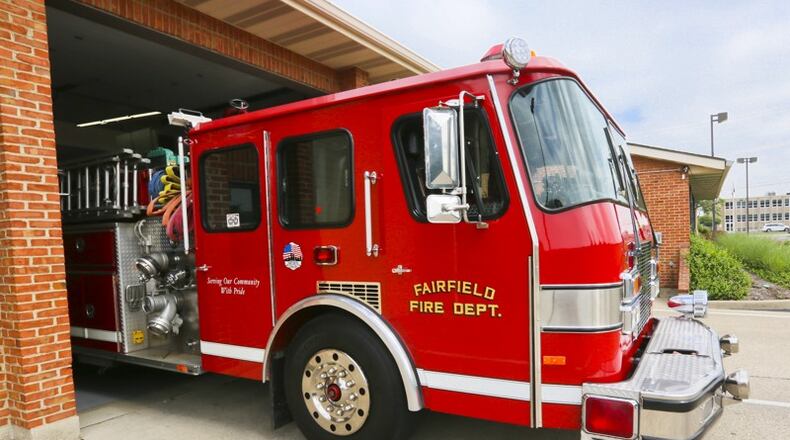The city’s proposed 2022 budget is set for $9.4 million, a 20.4% increase over 2021′s budget, but that increase includes six new full-time firefighters and salary adjustments of three recently promoted firefighters to lieutenant. Collectively these nine personnel moves will add more than $1.28 million to the 2022 budget.
The city hoped to get a new Staffing for Adequate Fire and Emergency Response grant to help pay for some of its new firefighters, and though it was denied, it was an expected result. City Council in 2019 rejected a SAFER grant because it required the city to keep new hires on after the grant ended. At the time, City Council believed it couldn’t afford to accept the grant, and was advised rejecting it could negatively impact future grant requests.
Bennett said the city was not awarded grant funds during the recent SAFER grant round. If they were approved, Fairfield would have been able to hire up to nine new firefighters. Instead, the city hired six, who will be online next month.
“We paid a price for not taking advantage of that last time it was offered, a bad decision for not accepting,” said Councilman Mark Scharringhausen of the SAFER grant. But he asked Bennett if the city will “get credit” for applying in the recent funding cycle while not receiving it.
“Distance and time is in our favor,” Bennet said, adding they did explain the circumstances as to why they rejected the grant award. “We openly admitted (as to why) rather than them thinking we were hiding it.
The chief said he expects denials in at least the next two rounds of SAFER grant funding before they could win another award, but he said the city will apply for every grant “every time we have an opportunity.”
The SAFER grant would have helped slow a problem not unique to Fairfield. For years, the city has seen the trend of part-time firefighters leaving for full-time jobs escalate. The average experience level for a Fairfield firefighter in September 2015 was four years. In September 2020, it was less than a year.
Bennett said City Council will soon need to consider transitioning into a professional department, meaning they would not employ part-time personnel.
“The reality of maintaining combination department is not a valid choice any longer,” Bennett said. “Right now we have seven (part-time) vacancies, we have no applications.”
Firefighters are looking for full-time jobs, staying in part-time positions for extremely short periods of time before being hired away. Newer part-time personnel in Fairfield are mostly 18 to 20 years old with little experience, and once they gain that experience, which on average is about 16 months, they leave for a full-time job, according to the department.
In less than two weeks, the city lost seven part-time freighters to full-time jobs elsewhere, Bennett told City Council on Monday night.
More are expected to leave as the city of Cincinnati is expected to hire 50 this spring. The cities of Hamilton and Middletown, the largest cities in Butler County, are also hiring.
“Virtually everybody is hiring,” Bennett said. “I have part-time people that will come in with two or three job offers asking me for input, asking me which one they should take.”
Bennett said “it’s just the environment that we have,” and because firefighters are looking for full-time jobs, he said “the quality of the candidates (for part-time jobs), for no better term, is slim pickings.”
But before the city can address its staffing issues, it needs the money. That would require, based on discussions by City Council and senior staff, a fire levy. Fairfield will look at going back to the ballot as early as 2022, five years after the last request, which voters approved. A type of levy has not been discussed publically, though voters approved a new levy in 2016. Bennett said in 2016, it was the city’s “hope” the funds would last 10 years before going back to the ballot ― barring, among other issues, any financial problems.
Besides the need for new firefighters, Bennett said pricing has significantly increased, now nearly two years after the start of the COVID-19 pandemic.
“Virtually everything on EMS supplies has increased,” the chief said. “As soon as the watchdogs watching price-gouging went to sleep, they (prices) ramped up.”
Finance Director Jacob Burton said there are a number of factors that contributed to the dwindling levy funds, including the lack of grants, a decrease in annual interest revenues from the levy funds, and flat EMS billing revenues.
“You’d be looking at about $1.5 million general fund transfer ... if you did nothing else,” he said.
About the Author

